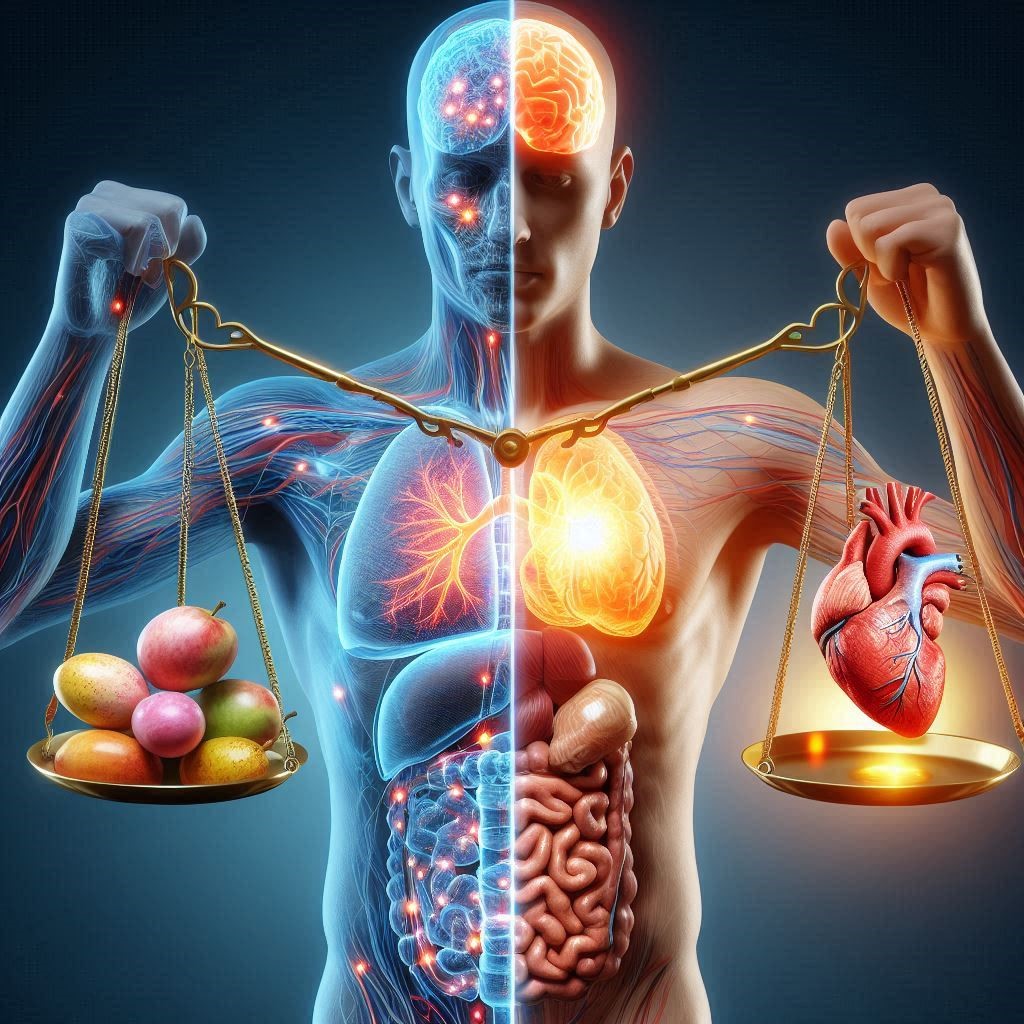Hormonal Balance:
Hormones are paramount in the complex of our bodies, as they are chemical substances that help control the sequence of reactions associated with our physiological being. Thus, the regulation of endocrine glands is an essential requirement in human life because changes in even slight concentrations of chemical substances can lead to significant consequences in hormonal balance. They consist of general knowledge of hormonal balance, the importance of hormonal balance in the human body, hormones used, and a checklist that a man, woman, or any human being can use to balance the hormones in the body.
The Significance of Hormonal Balance:
They also have great major functions in the body, and they all have to be in proper proportions to ensure the best and healthiest performance. For the right functioning of the human body, hormones are responsible. Hormones are also known as chemical messengers. They take part in metabolism, growth, reproduction, moods, and sleep, among others. Mainly, when the conditions are related to hormones, and hormones are critical components of the human body, they might cause numerous issues and challenges if not dealt with properly. It is thus important to maintain hormone levels to normal in an effort to prevent and handle hormonal imbalance disorders and chronic illnesses.

Key Chemicals and Their Capabilities:
Insulin:
Insulin is delivered in the pancreas and its function is to control the production of blood glucose. It impacts the peculiarities of energy digestion.
Cortisol:
Cortisol is also known as the pressure chemical. It is orchestrated by the adrenal organs. It assists with tending to pressure in the body. Notwithstanding, stress that is tenacious in a given society is probably going to raise or lower the convergence of cortisol in unevenness.
Estrogen and progesterone:
They are associated with ovulation, and while optional to regenerative chemicals, they achieve changes in the period and set up the body for origination. These chemicals control maternal and fetal requests for supplements and supplement accessibility and lack of these chemicals could prompt a few illnesses, for example, polycystic ovary disorder and menopausal side effects.
Testosterone:
Testosterone is a recognizable female chemical engaged with issues connecting with bone and muscle digestion and sexual drive. It is in both young men and young ladies.
Thyroid Chemicals:
The organ frequently alluded to as the thyroid organ produces chemicals that are fundamental for the general working of the human body, including digestion, energy creation, and temperature guidance. Anomaly with the thyroid chemicals fundamentally causes hypothyroidism or hyperthyroidism.
Factors Influencing Hormonal Balance :
A few elements can contribute to hormonally lopsided characteristics, including
Age:
Absence of activity additionally prompts hormonal awkwardness, and chemical levels change at various phases of life, such as during pregnancy, the beginning of adolescence, and the menopausal period.
Stress:
Chronic stress disrupts the endocrine system, leading to issues such as thyroid dysfunction, reproductive hormone imbalances, and insulin resistance.
Diet and Way of Life:
The absence of suitable sustenance, a stationary way of life, or undesirable types of nourishment can influence the hormonal profile.
Signs and Symptoms of Hormonal Imbalance:
Some common symptoms include:
- Possible weight gain or struggle to lose weight
- Stress: fatigue and low energy levels
- Effects of irregular menstruation or other menstrual-related concerns
- Psoriasis, eczema, acne, dandruff, and losing hair
- Gastrointestinal symptoms, including signs of IBS, as well as alterations in eating preferences
- Sleep disturbances
- Low sexual desire or maybe even problems with conception
Achieving Hormonal Balance:
Consider the following are some strategies and tips to engage in discourse with young people:
Hormonal imbalance does not only have to do with medications but is more of a hormonal complication. Address hormonal imbalance by making several lifestyle changes, changing your diet, and if all else fails, undergoing medical procedures. Here are some practical strategies to help achieve and maintain hormonal balance:
Exercise Regularly:
Some of the ways physical activity benefits hormonal balance involve manipulation of dietary choices, reaching an optimal weight, and enhancing stress control.
Get Sufficient Sleep:
The annual review of sleep should aim for 7-9 hours of quality sleep per night since the regulation of hormones depends on the amount of sleep acquired.
How to Maintain Hormonal Balance:
- Diet: Always make healthy food choices and obtain a diet with a mixture of excellent nutrients from fresh and unprocessed foods.
- Making use of physical activity makes it necessary to engage in physical exercise, most specifically regular exercise.
- Take courses in pressure reduction, like contemplation or yoga, to assist with easing pressure.
- Give a sufficient amount and nature of rest; that is to say, get at least seven to nine hours of rest around evening time.
- Limit contact with perilous synthetic substances and manufactured intensifiers that might adversely affect human endocrine frameworks.
- Always ensure you have enough, or even better, take a lot of water, as it usually prevents dehydration.
- Only in cases where it is advised to do so by a medical practitioner (Ninh 34).
- Make sure to have the right portion size and portion them out while engaging in weight-loss exercises.
- Currently, the organization should encourage moderation in the consumption of alcohol and smoking cessation.
- Encourage strategies that would help the individuals relax, such as practicing yoga or going for a walk.
- Register the fluctuations in hormones and symptoms and consult a doctor if necessary.
- Develop good ways of handling stress and/or emotional Practice good coping strategies for stress and emotional distress.
How to support:
- Acknowledge that everyone has stress and find the ability to cope with it. Acknowledge that everyone has stress and deals with it in their own way.
- Try out natural enhancements as and when possible, including herbs and other products (consult your doctor).
- Promote caregiver nurturing and a positive predisposition.
- Seek professional medical assistance from your doctor or healthcare provider for further information.
- With these actions applied to your daily practices, you will be able to perform preventive processes for hormonal imbalance and therefore improve your health and well-being.
Conclusion:
Cohesive hormonal regulation is crucial for the health and fitness of the body system and all its functionalities. By learning the main hormones, the means through which they act, and conditions that can impact their balance, one should take measures to keep their sensitive hormonal system healthy. It is therefore important to understand that hormonal balance cannot be achieved like any other standard procedure that may apply to many people. It may call for special treatment depending on people’s needs. Learning to listen to your body, getting back to natural and healthy living, and turning to professionals when necessary is the only way to get back to a normal hormonal balance.
